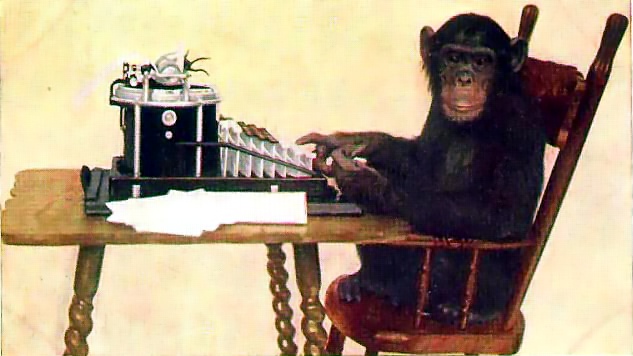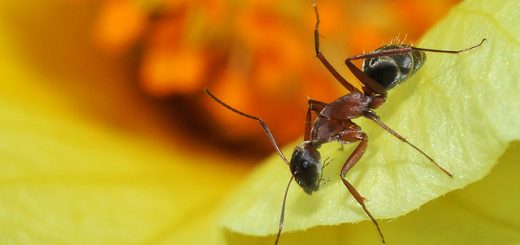What makes us human?

What distinguishes us from the chimpanzee, our closest relative with whom we share 99% of our DNA? Is it possible to define uniquely human features? Dr Amanda Lucas and Dr Lewis Dean gave a very good insight into answering those questions at the Glasgow Science Festival.
There are huge technological and social differences between humans and chimpanzees. Humans developed agriculture, complex social and political institutions and sophisticated technologies. Chimpanzees also develop and use tools, but they are much simpler and do not improve with time.Although there may be genetic variations which make us inherently different, behavioural differences seem to be the most obvious. For example, humans developed a cumulative culture, which distinguishes us from any other animal. Cumulative culture is defined by copying and teaching others. Achievements are transferred to offspring, which allows innovation and improvement over generations. Therefore cumulative culture leads to much more complex developments than those a single person could invent within a lifetime.
This concept was beautifully illustrated through a practical demonstration which involved a volunteer being taught how to open a box in order to get a treat. The learning process involved practical gestures (opening the door of the compartment which contained the treat), as well as purely ceremonial gestures (tapping one side of the box 4 times). Naturally, tapping the box does not change anything about the process and has no effect on the treat or any part of the box. However, the volunteer still carried on this unnecessary gesture before opening the box. By contrast, a chimpanzee would simply open the box and get the treat. It is this keenness to overimitate (seemingly) unnecessary actions that, among other things, makes us humans different. The characteristic that allowed us to develop a cumulative culture is the ability and desire of faithful copying. We even copy procedures that do not make sense at first glance or are clearly useless. This might seem stupid, however, it makes us plant seeds, make fire and use medicine. Chimpanzees on the other hand copy only behaviour with an immediate goal.
Another essential human feature is conformity, which makes us copy the behaviour of the majority. Temporary fashions are one result of this. Conformity even makes us copy procedures or give answers that are obviously wrong. In an experiment, a group of people had to compare the lengths of lines and tell which lines have the same lengths. If the whole group gave an obviously wrong answer, the test person followed the group’s judgement in fear of embarrassment. Conformity and the necessity of being part of a social group leads to cooperation. Cooperation allows accomplishments that are impossible for a single person, as hunting large animals, for instance. Achieving something together however, also means that you have to share. In general, more cooperative groups are more successful, which has an impact on natural selection. People who are excluded from the group appear less attractive to potential sexual partners.
Dr. Amanda Lucas and Dr. Lewis Dean skillfully outlined the fact that cumulative culture, faithful copying, the degree of cooperation and conformity are the key features that distinguish us from any other animal. They also showed how these concepts explain the occurrence of highly advanced technologies and the emergence of the complex society we now take for granted. The engaging kind of presentation and Interactive experiments made this event a memorable experience for kids as well as adults.
What makes us human? by Teodora Aldea and Sarah Neidler was copy edited by Charlie Stamenova and Nina Divorty.










